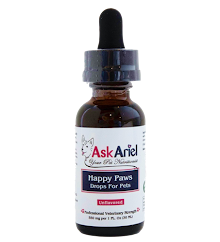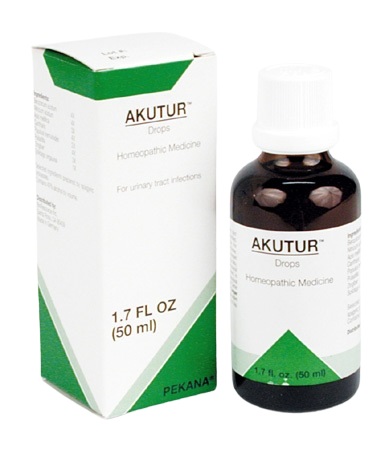Causes of Interstitial Cystitis In Cats
Several factors may contribute to the development of FIC in cats.
Stress: Stress is believed to be a significant trigger for FIC in cats. Environmental changes, such as moving to a new home, introduction of new pets, or changes in routine, can lead to stress and exacerbate symptoms.
Diet: Certain dietary factors, such as high mineral content in food or a diet low in moisture, may contribute to the development of FIC in cats. Lack of proper hydration can lead to concentrated urine, which may irritate the bladder lining.
Genetics: There may be a genetic predisposition to FIC in some cats, as certain breeds appear to be more susceptible to the condition.
Urinary tract issues: Chronic urinary tract infections as well as structural abnormalities in the urinary tract may increase the risk of FIC.
Nervous System Dysfunction: abnormal communication between the bladder and the brain, may play a role in the development of FIC.
Signs Your Cat May Have FIC (Insterstitial Cystitis)
Urinary urgency: Cats with FIC may have an urgent need to visit the litter box more than usual. You may notice them strain to urinate.
Painful urination: they may experience discomfort or pain when urinating. Which can cause them to cry out while in the litter box.
Urinating outside the litter box: you may find them urinating outside the litter box in an attempt to find relief from the discomfort associated with the litter box.
Blood in the urine: You may see blood in the urine or it might be microscopic which would require a laboratory test to find see it.
Frequent grooming of the genital area: Cats may excessively groom their genital area in an attempt to alleviate discomfort
What About Dogs And Intersitital Cystitis?
While dogs may not typically develop interstitial cystitis like cats or humans do, they can still suffer from a range of urinary tract problems. These issues can include urinary tract infections, bladder stones, bladder tumors, and other conditions that cause inflammation or irritation of the bladder. UTIs and interstitial cystitis are distinct conditions, but chronic or recurrent UTIs could potentially lead to inflammation and irritation of the bladder and over time could contribute to the development of interstitial cystitis, especially if your pet is predisposed. If you suspect your dog is experiencing recurrent UTIs, it's important to consult with a veterinarian for proper diagnosis and treatment.
Treatments For Intersitital Cystitis
Treating interstitial cystitis (IC) in both cats and dogs involves a comprehensive approach aimed at managing symptoms and improving overall comfort and well-being. This typically includes:
Stress reduction: Creating a calm and stress-free environment is essential for both cats and dogs with IC. Minimizing environmental stressors, providing enrichment, and maintaining consistent routines can help reduce anxiety and alleviate symptoms.
Dietary management: Switching to a high-quality, wet food diet or a prescription urinary diet may be beneficial for both cats and dogs with IC. These diets can help increase water intake, promote urinary tract health, and reduce the risk of flare-ups.
Increased water consumption: Encouraging both cats and dogs to drink more water can help flush out the bladder and reduce irritation. Providing multiple sources of fresh, clean water and using fountains or running water bowls may entice them to drink more.
Medications: Your veterinarian may prescribe medications to alleviate pain, reduce inflammation, or relax the bladder muscles in both cats and dogs with IC. These medications can help manage symptoms and improve comfort levels.
Environmental modifications: Ensuring easy access to clean litter boxes for cats and appropriate outdoor areas for dogs is important. Using unscented, clumping litter for cats and keeping litter boxes in quiet, low-traffic areas can help minimize stress.
Behavioral therapy: Some cats and dogs with IC may benefit from behavioral therapy techniques, such as desensitization and counterconditioning, to help reduce stress and modify unwanted behaviors associated with the condition.
Regular veterinary check-ups: Regular veterinary visits are essential for monitoring your pet's condition, adjusting treatment as needed, and addressing any potential complications or underlying health issues.
By working closely with your veterinarian and implementing these strategies, you can help manage IC in both cats and dogs and improve their quality of life.
Can Holistic Care Help?
Absolutely. Holistic care should not be a replacement for conventional veterinary care but can help if your pet has Interstitial Cystitis or UTIs. Holistic care offers you more choices and treatment options to help your pet but work with your veterinarian to monitor your pet’s progress using laboratory tests and even in-home periodic pH urinary test strips that you do yourself.
Natural Supplements For Interstitial Cystitis and UTIs
Akutur UTI Support Drops - Promotes healing of the urinary tract and bladder. It provides pain relief in the urinary tract, reduces inflammation and helps restore balance in the bladder and pelvic floor. Akutur drops help prevent bacteria from hiding within the bladder walls and help to clear out toxins in the urinary tract. It’s especially helpful for pets with a history of urinary plugs, interstitial cystitis and bladder cancer. For best results, combine with Olive Leaf Extract and NOT Drops.

Happy Paws Hemp Extract Drops is a high-quality hemp extract that can help relieve pain and inflammation. Since stress is often a trigger of interstitial cystitis, the calming effects of Happy Paws can be especially helpful. Organically grown in Colorado. Easy to administer to cats and dogs.
Author: Susan Blake Davis, Pet Nutritionist
Revised and Updated 4/8/2024









